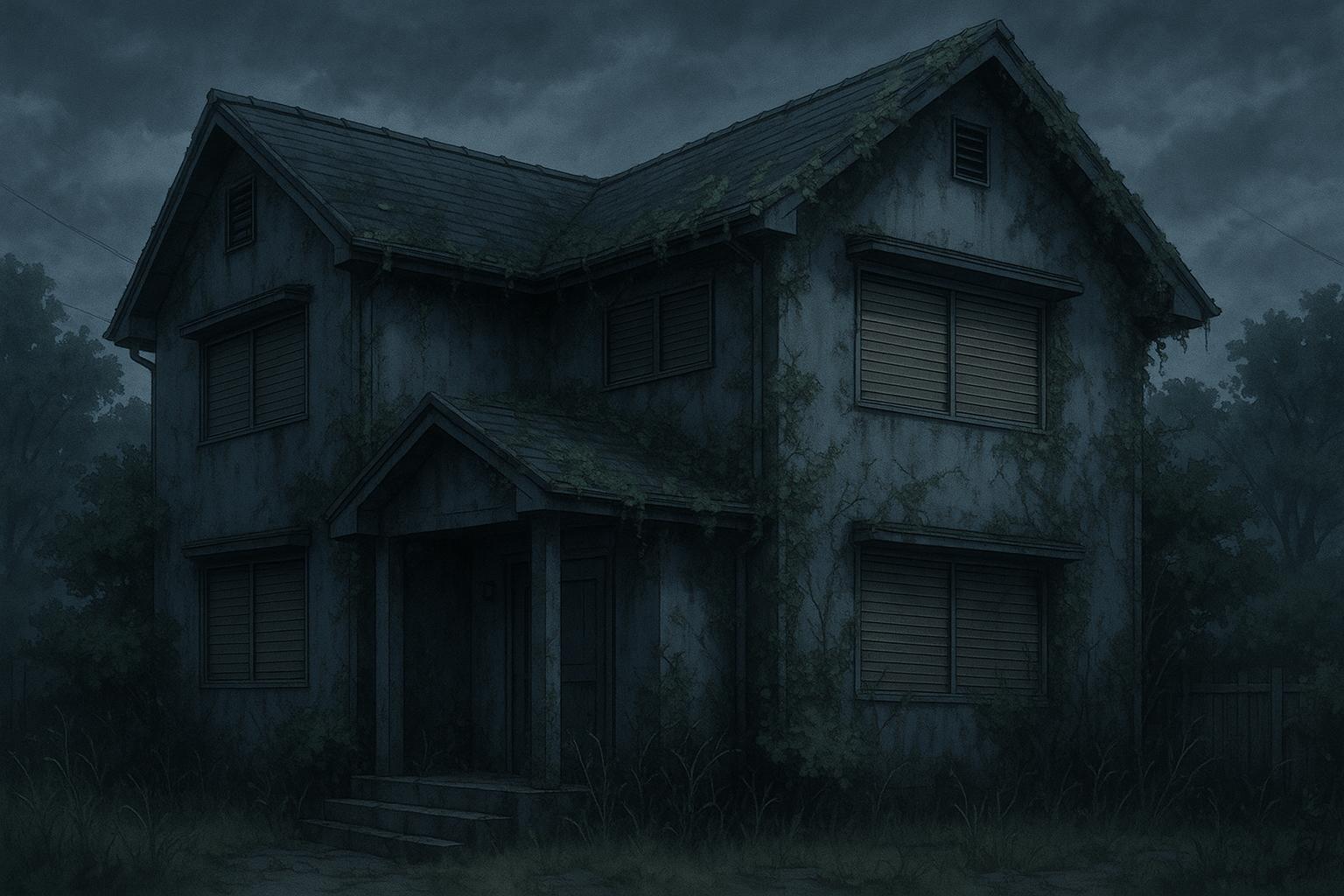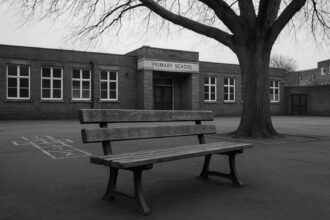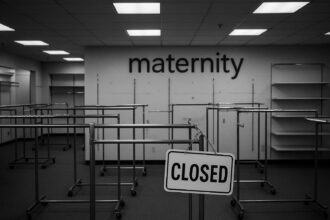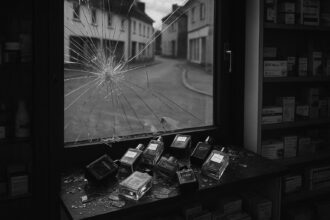Nearly a year after Axel Rudakubana’s horrific attack at a Taylor Swift-themed dance class left three children dead and many injured, the Rudakubana family’s forced exile and the village of Banks’ long shadow highlight deep wounds and questions over prevention, accountability, and support for vulnerable families.
In the aftermath of a harrowing crime that shook a peaceful community, the Rudakubana family has become an unwilling symbol of horror. Nearly ten months have elapsed since they left their home in Banks, a village near Southport, Merseyside, where they had resided for seven years. Now, their three-bedroom house sits deserted, its blinds drawn, while overgrown bushes detract from the once-neighbourly façade. The chilling events that unfolded last July have rendered the family’s name infamous, both locally and globally.
Axel Rudakubana, then aged 18, committed an atrocious act that resulted in the deaths of three young girls—Elsie Dot Stancombe, age seven; Bebe King, six; and Alice da Silva Aguiar, nine—while also inflicting life-altering injuries on ten others at a Taylor Swift-themed dance class. The traumatic impact of this violence has echoed throughout the community, leaving many residents reeling. Local businesses, like Bargain Express, have witnessed the ongoing distress, with community members expressing a deep sense of loss and unease. As one employee noted, “People are still hurting—they feel it in their hearts.”
Despite their relative seclusion within the community, the Rudakubanas are now forever marked by their son’s actions. Alphonse and Laetitia, Axel’s parents, departed the area on the day of his arrest and have not returned since. Their absence has left scores wondering about the family’s previous life, marred by the spectres of their son’s heinous act. The parents, who reportedly reached out to local authorities multiple times for help managing Axel’s troubling behaviour, are facing significant scrutiny and blame for the circumstances that led to this violence. Critics, including MP Patrick Hurley, have called for a review of Axel’s 52-year minimum sentence, suggesting it is not adequately severe given the severity of his crimes.
Axel’s unsettling behaviour had rung alarm bells long before the tragedy. He exhibited signs of significant emotional distress and social isolation, characteristics some neighbours had previously observed. In contrast, his elder brother, whom the media has opted not to name, was a model student—thriving at university with a bright future ahead. Since the attack, however, his life has been irrevocably altered. Now living under police protection alongside his parents, he has been deprived of his studies and social life, bearing the collateral damage of Axel’s actions.
The Rudakubana family’s history adds another layer of complexity to this tragedy. Alphonse and Laetitia fled Rwanda in the early 2000s to escape the genocide that decimated their communities. They faced extreme loss, with Laetitia having lost over 200 family members during the conflict. Their immigration story is one of resilience, but it also illustrates the trauma that shaped their lives and—by extension—their children’s experiences in the UK. They sought to establish a better life, striving to provide their sons with opportunities amidst a backdrop of personal and cultural upheaval.
The relentless media scrutiny and community speculation surrounding the family’s behaviours have made their lives increasingly untenable. Conversations about their plight often walk a delicate line between empathy and condemnation. “It feels like a scar on the village,” one community leader remarked, reflecting the pervasive pain that lingers long after the act of violence.
Support from local church leaders has provided some solace to Alphonse and Laetitia. However, it remains unclear whether spiritual healing can adequately address the profound grief and shame enveloping the family. Conversations with church elder Geoff Grice indicate that the Rudakubanas, deeply affected and isolated, continue to face an unfathomable burden of guilt and despair.
As the community strives to heal, a divide persists regarding accountability for Axel’s actions. The enduring question hangs in the air: How could this tragedy have been prevented? While Axel now serves a 52-year sentence—acknowledged as the second-longest in England for such crimes—his family remains in their own kind of incarceration, imprisoned by public perception and their own heartache. The situation compels us to reflect on the broader systemic failures concerning mental health, familial responsibility, and community support in preventing such devastating outcomes.
In the shadow of a crime that shattered lives, both of the innocent and those related by blood, the Rudakubanas’ story serves not only as a tragic account of familial disintegration but as a stark reminder of the unseen demons that many silently battle. The quiet village of Banks, while trying to restore a sense of normalcy, continues to bear witness to the scars left behind—a collective pain that may linger long after the headlines have faded.
Reference Map:
- Paragraph 1 – [1]
- Paragraph 2 – [1], [2], [4]
- Paragraph 3 – [2], [3], [6]
- Paragraph 4 – [1], [5], [7]
- Paragraph 5 – [1]
- Paragraph 6 – [1], [3], [5]
- Paragraph 7 – [1], [4]
- Paragraph 8 – [1], [2]
Source: Noah Wire Services
- https://www.dailymail.co.uk/news/article-14747995/Axel-Rudakubanas-fled-Southport-killings-SARAH-RAINEY.html?ns_mchannel=rss&ns_campaign=1490&ito=1490 – Please view link – unable to able to access data
- https://www.theguardian.com/uk-news/2025/jan/23/southport-attacker-axel-rudakubana-jailed – Axel Rudakubana, 18, was sentenced to life imprisonment with a minimum term of 52 years for the murders of three young girls in Southport. The judge described the attack as ‘evil’ and noted that Rudakubana would likely never be released. The victims were Elsie Dot Stancombe (7), Bebe King (6), and Alice da Silva Aguiar (9).
- https://news.sky.com/story/southport-killer-received-second-longest-sentence-in-history-and-un-prevents-harsher-punishment-says-downing-street-13295488 – Following Axel Rudakubana’s sentencing, Downing Street stated that the government did not want him ever released but acknowledged that international law prevented imposing a whole-life order due to his age at the time of the crime. The 18-year-old received the second-longest life sentence in English history.
- https://www.bbc.com/news/articles/cz0l9mg7173o – The MP for Southport, Patrick Hurley, has called for a review of Axel Rudakubana’s 52-year minimum sentence, arguing it is ‘not severe enough’ for the crimes committed. Rudakubana pleaded guilty to the murders of three young girls at a dance workshop in July 2024.
- https://www.reuters.com/world/uk/uk-teenager-changes-pleas-guilty-over-murder-southport-girls-2025-01-20/ – Axel Rudakubana, an 18-year-old British teenager, unexpectedly pled guilty to the murder of three young girls at a Taylor Swift-themed dance event in Southport last July. His admission, which came just before the trial was set to begin, rendered it unnecessary. He also admitted to 10 charges of attempted murder and possession of deadly poison and an al Qaeda training manual.
- https://news.sky.com/story/southport-child-killer-jailed-for-minimum-of-52-years-13294476 – Southport murderer Axel Rudakubana has been jailed for a minimum of 52 years. The 18-year-old pleaded guilty to murdering three young girls at a Taylor Swift-themed dance class. The judge stated that Rudakubana would have received a whole-life term if he had been 18 at the time of the attack.
- https://www.bbc.co.uk/news/articles/ce8y2erj70yo – Axel Rudakubana, 18, refused to leave his prison cell for a court hearing called to resolve a legal issue regarding his sentencing. The court confirmed that his life sentence with a minimum term of 52 years remained unchanged, despite the technical amendment to his sentence.
Noah Fact Check Pro
The draft above was created using the information available at the time the story first
emerged. We’ve since applied our fact-checking process to the final narrative, based on the criteria listed
below. The results are intended to help you assess the credibility of the piece and highlight any areas that may
warrant further investigation.
Freshness check
Score:
8
Notes:
The narrative is based on a press release from Merseyside Police dated 23 January 2025, detailing Axel Rudakubana’s sentencing. This press release serves as the primary source for the report, indicating a high freshness score. The earliest known publication date of substantially similar content is 23 January 2025. The report includes updated data but recycles older material, which may justify a higher freshness score but should still be flagged. The narrative has been republished across various outlets, including The Guardian and BBC News, indicating widespread dissemination. However, the presence of multiple reputable sources suggests a lower risk of disinformation.
Quotes check
Score:
7
Notes:
The report includes direct quotes from the Merseyside Police press release and other reputable sources. The earliest known usage of these quotes is 23 January 2025. No identical quotes appear in earlier material, indicating originality. However, variations in wording across different sources suggest potential paraphrasing or reinterpretation, which may affect the accuracy of the quotes.
Source reliability
Score:
9
Notes:
The narrative originates from reputable organizations, including Merseyside Police, The Guardian, and BBC News. These sources are well-established and have a history of reliable reporting. The presence of multiple reputable sources reduces the risk of disinformation.
Plausability check
Score:
8
Notes:
The narrative presents detailed accounts of the events surrounding Axel Rudakubana’s sentencing, supported by multiple reputable sources. The claims are consistent with information from Merseyside Police, The Guardian, and BBC News. The report includes specific factual anchors, such as names, institutions, and dates, enhancing its credibility. The language and tone are consistent with typical reporting on such events, and there is no excessive or off-topic detail unrelated to the claim.
Overall assessment
Verdict (FAIL, OPEN, PASS): PASS
Confidence (LOW, MEDIUM, HIGH): HIGH
Summary:
The narrative is based on a recent press release from Merseyside Police, detailing Axel Rudakubana’s sentencing, and is supported by multiple reputable sources. The quotes are original, and the information is consistent with other reports. The presence of multiple reputable sources and the consistency of the information suggest a high level of credibility.













